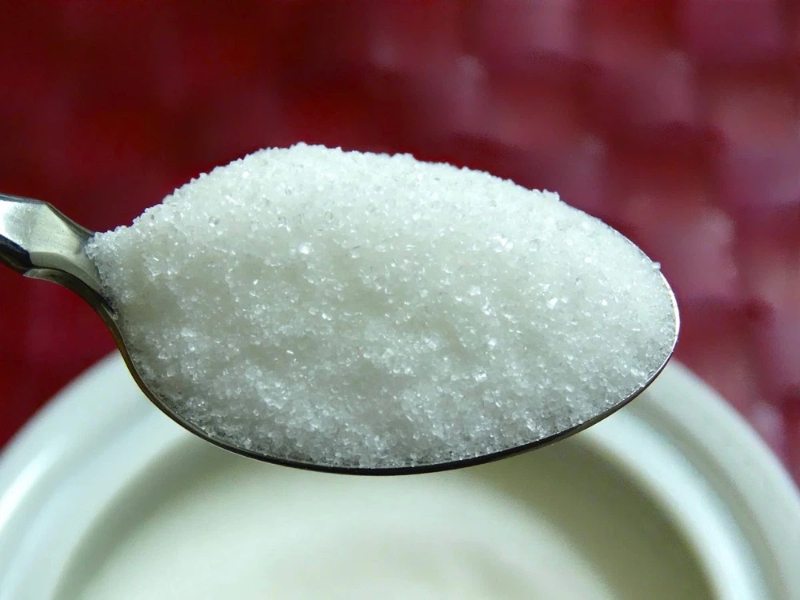







Content Menu
>> Chemical Structure and Metabolism
● How Aspartame Affects the Digestive System
● Does Aspartame Cause Diarrhea or Increase Bowel Movements?
● Other Digestive Effects of Aspartame
>> Inflammation and Gut Barrier
>> Metabolic and Systemic Effects Linked to the Gut
>> Safety and Regulatory Status
>> Precautions and Individual Sensitivities
● Frequently Asked Questions (FAQ)
>> 1. Does aspartame cause diarrhea?
>> 2. How does aspartame affect gut bacteria?
>> 3. Is aspartame safe for daily consumption?
>> 4. Can aspartame cause bloating or gas?
>> 5. What are the long-term digestive health concerns related to aspartame?
Aspartame, a widely used artificial sweetener, has sparked many questions about its effects on the human digestive system. Among these queries, one common question is: Does aspartame make you poop? This article explores aspartame's impact on digestive health, gut microbiota, potential side effects like diarrhea, and its metabolism and safety profile. Through scientific evidence and expert insights, this comprehensive discussion will clarify whether aspartame consumption influences bowel movements and overall gut health.

Aspartame is a low-calorie artificial sweetener used globally in various foods and beverages, including diet sodas, sugar-free gum, and many processed items. It is approximately 200 times sweeter than sucrose, allowing manufacturers to use it in very small quantities to achieve the desired sweetness without adding calories.
Aspartame is a methyl ester of the dipeptide composed of two amino acids: phenylalanine and aspartic acid. Upon ingestion, aspartame is broken down in the digestive tract into these amino acids and a small amount of methanol, which the body processes like methanol from other dietary sources.
The question of whether aspartame causes changes in bowel habits, especially facilitating or disturbing bowel movements, relates to how it interacts with the gastrointestinal (GI) tract.
Recent studies reveal that aspartame consumption can alter the gut microbiota composition. Research from Cedars-Sinai indicates that aspartame consumption leads to changes in the bacterial richness in the small intestine, with a microbial diversity impact differing from other artificial sweeteners. However, the bacterial richness is reported to be similar to control groups, suggesting aspartame may have a less disruptive effect compared to other sweeteners.
Artificial sweeteners, including aspartame, have been shown to alter the diversity and abundance of various gut bacterial populations. For example, human studies have found increased levels of bacteria such as Enterobacteriaceae and Clostridium leptum with aspartame intake, though changes in bacterial diversity vary across studies. Aspartame also impacts the oral microbiota by reducing certain bacterial species like Porphyromonas and Prevotella nanceiensis.
Altering gut microbiota can influence digestion and metabolic health, but the specific clinical implications of aspartame-induced changes remain under investigation.

The clinical evidence on aspartame inducing diarrhea or increasing bowel movements remains mixed:
- Some sugar substitutes, particularly certain polyols and sugar alcohols, are known to cause gastrointestinal discomfort and diarrhea when consumed in excess, as they reach the large intestine and ferment by gut bacteria.
- Aspartame, however, is mostly absorbed in the small intestine and metabolized, leaving minimal amounts to affect the colon directly.
- That said, high doses or sensitivity to aspartame could theoretically cause mild GI symptoms in some individuals, but large-scale clinical trials have not demonstrated a direct causative effect on stool frequency or diarrhea.
In contrast, derivatives of aspartame, such as neotame, have been shown in laboratory settings to damage gut cells and cause inflammation, which could theoretically impact bowel function.
Aspartame itself is less likely to cause bloating or gas compared to sugar alcohols like maltitol or erythritol, which are poorly absorbed and fermented in the colon. However, individuals consuming products with mixed sweeteners might experience varied GI symptoms.
Emerging evidence suggests that artificial sweeteners, including aspartame, may influence intestinal inflammation and gut barrier integrity. Some studies observe inflammatory marker alterations in the gut after aspartame intake, although results are inconclusive and require further research.
Beyond local digestive effects, aspartame metabolism and changes in gut microbial populations have been linked to broader systemic outcomes. Some studies show that aspartame intake with high-fat diets can impair glucose tolerance and elevate fasting glucose levels, potentially mediated through gut microbiota alterations. There is also evidence of aspartame-related changes in liver function and possible inflammation pathways originating from the gut.
Aspartame has been evaluated extensively by food safety authorities such as the U.S. FDA, EFSA, and WHO. It is considered safe for the general population within the established acceptable daily intake (ADI) of 40 mg/kg body weight. However, individuals with phenylketonuria (PKU) must avoid aspartame due to its phenylalanine content.
The International Agency for Research on Cancer (IARC) classified aspartame as possibly carcinogenic to humans (Group 2B), based on limited evidence, but regulatory bodies have reaffirmed its safety at recommended intake levels.
While aspartame is generally safe, some people report sensitivity, including headaches, dizziness, or mild gastrointestinal discomfort. Monitoring personal tolerance and consuming within recommended amounts is advisable.
Aspartame, a widely used artificial sweetener, has a complex relationship with the digestive system. Current scientific evidence does not conclusively support the claim that aspartame directly makes you poop or causes diarrhea in typical consumption levels. It does influence gut microbiota composition and possibly gut metabolism, but clinical symptoms like increased bowel movements are uncommon and may depend on individual sensitivity or dose.
Users concerned about digestive discomfort from sweeteners should consider their entire diet, as other sugar substitutes may contribute more significantly to GI symptoms. Continued research is necessary to fully understand the long-term implications of aspartame on gut health.

Aspartame is generally well absorbed in the small intestine, and most studies indicate it does not cause diarrhea at normal consumption levels. However, extremely high intake or sensitivity might cause mild GI symptoms.
Aspartame can alter the diversity and composition of gut microbiota, but its impact appears less severe compared to other artificial sweeteners, with some bacterial populations increasing or decreasing under its influence.
Regulatory agencies worldwide approve aspartame's safety within recommended limits. It is considered safe except for people with PKU who must avoid it due to phenylalanine content.
Aspartame typically does not cause bloating or gas as it is largely absorbed in the upper digestive tract, unlike some sugar alcohols known for gastrointestinal side effects.
Some studies indicate potential alterations in gut microbiota and inflammation markers, but long-term effects on digestive health are not conclusively established and require further research.
[1](https://www.cedars-sinai.org/newsroom/research-alert-artificial-sweeteners-significantly-alter-the-small-bowel-microbiome/)
[2](https://pmc.ncbi.nlm.nih.gov/articles/PMC10144565/)
[3](https://www.sciencedirect.com/science/article/pii/S0899900723002654)
[4](https://pmc.ncbi.nlm.nih.gov/articles/PMC11247189/)
[5](https://www.efsa.europa.eu/sites/default/files/corporate_publications/files/factsheetaspartame.pdf)
[6](https://www.who.int/news/item/14-07-2023-aspartame-hazard-and-risk-assessment-results-released)
[7](https://www.jnmjournal.org/journal/view.html?doi=10.5056%2Fjnm15206)
[8](https://www.fda.gov/food/food-additives-petitions/aspartame-and-other-sweeteners-food)
[9](https://www.sciencedirect.com/science/article/pii/S2161831322001983)
